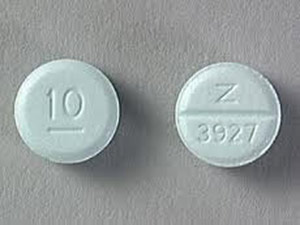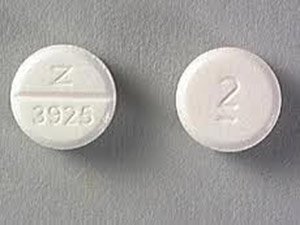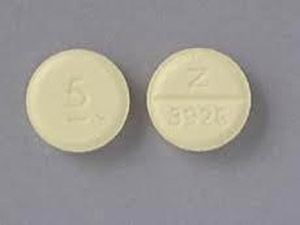Category: Buy Diazepam Online
Showing all 3 results
What is Diazepam?
Diazepam belongs to the benzodiazepine family that produces a calming effect. It helps treat a range of conditions, from anxiety to withdrawal symptoms. There are various ways to take this medicine, such as orally, inserted into the rectum, injecting into the muscle/vein, or using it as a nasal spray.
Diazepam oral tablet is helpful in the following conditions, anxiety alcohol withdrawal symptoms such as agitation and tremors add on treatment for skeletal muscle spasms, or add on therapy for certain types of seizures.
Diazepam has proven itself sufficient to cause memory loss during specific medical procedures. Its effect begins after 15 to 60 minutes. It is one of the most frequently recommended medications globally, and it can also work in combination therapy. In this, you need to take Diazepam with other drugs.
Important Information
Diazepam can slow down or stop your breathing, especially if you were recently taking alcohol, opioid medication, or other drugs that affect your breathing.
In treating anxiety, alcohol withdrawal, or muscle spasms your baby could become dependent upon it if you take this drug during pregnancy. It can cause life withdrawal symptoms in the baby. The drug-dependent baby may need medical treatment for several weeks.
Diazepam is still not under consideration for use by anyone younger than six months. Do not give this medicine to a child without medical consultation.
What to know before taking Diazepam?
You should resist taking it if you are allergic to Diazepam or other similar drugs such as Klonopin, Xanax, and others or if you have:
- Severe liver disease.
- Myasthenia gravis.
- A severe breathing problem.
- Sleep apnea (interruption in breathing during sleep).
- Alcoholism or drug addiction similar to Diazepam.
Consult your doctor if you ever had:-
- Glaucoma.
- Asthma, emphysema, bronchitis.
- Chronic obstructive pulmonary disease (COPD).
- Kidney or liver disease.
- A drug or alcohol addiction.
- Epilepsy or other seizure disorder.
- Mental illness, depression.
- Suicidal thoughts or behavior.
During the treatment of seizures, do not initiate or stop taking Diazepam during pregnancy without the doctor’s advice. It may harm the unborn baby, but having an attack during pregnancy is harmful to both the mother and the baby. Tell your doctor if you conceive while taking this medicine.
In treating anxiety, alcohol withdrawal, or muscle spasms. your baby could become dependent upon it if you take this drug during pregnancy. It can cause life withdrawal symptoms in the baby. The drug-dependent baby may need medical treatment for several weeks.
This medicine is still not under consideration for use by anyone younger than six months. Do not give this medicine to a child without medical consultation.
How to take Diazepam?
Take Diazepam precisely as per the doctor’s recommendation. The diazepam dosage depends on the type and severity of the condition, age, the form of Diazepam you take, and other medical conditions you have.
Typically the doctor starts on a low dosage and adjusts it over time to reach the required dosage according to your condition. Ultimately they will provide the smallest dosage that will give the desired effect.
Diazepam dosage
Dosage for anxiety
Adult dosage (ages 18 to 64 years)
- The usual dosage is 2mg to 10mg two to four times per day taken orally.
Child dosage (ages six months to 17 years)
- The standard starting dosage is 1 mg to 2.5 mg three to four times a day, taken by mouth.
Child dosage (ages 0 to 5 months)
- A child below half a year of age is ineligible to take this medicine.
Senior dosage (ages 65 years and older)
- Typically the starting dosage is 2 mg to 2.5 mg one or two times per day taken orally.
The doctor will slowly increase your dosage in this case. The drug processing ability of your body will be slower. Your doctor may start on a lower dosage because too much of the drug in your body can be toxic. Starting dosage for a debilitating disease is 2 mg to 2.5 mg, once or twice per day.
Dosage for acute alcohol withdrawal
Adult dosage (ages 18 to 64 years)
- The typical dosage is 10 mg orally taken by mouth three to four times during the first 24 hours. Later, this will reduce to 5 mg taken 3-4 times per day as needed, based on withdrawal symptoms.
Child dosage (ages six months to 17 years)
- Typically the dosage is 1 mg to 2.5 mg three to four times per day taken by mouth
The doctor will start at the lowest dosage and increase it with time-based on your response after consuming this medicine.
Overdose
If you feel an overdose, take urgent medical help or call the Poison helpline at 1-800-222-1222. Overdose symptoms may include lack of coordination or balance, extreme drowsiness, slow breathing, limp or weak muscles, or coma.
What to avoid while using Diazepam?
- Avoid alcohol consumption and grapefruit products. Interaction of these two with Diazepam can cause severe side effects or death.
- Avoid driving or performing any hazardous activity until you know the effect of this medicine on you.
Diazepam side effects
Diazepam oral tablets can slow down your brain’s activity and interfere with your thinking, judgment, and motor skills. So, you must not drink or use any other drugs that can slow down your brain’s activity while taking Diazepam. Please do resist driving or operating machinery that requires alertness until you know this drug is affecting you.
Common side effects that can occur by the use of Diazepam are:-
- Drowsiness
- Fatigue
- Weakness in muscle
- Ataxia
- Headache
- Dizziness
- Tremor
- Dry mouth/excessive saliva
- Nausea
- Constipation
These effects may take comparatively less time to go away if they are mild. Talk to your doctor if these symptoms are severe.
Serious side effects of taking Diazepam are:-
- Withdrawal symptoms such as tremor, abdominal or muscle cramps, sweating, and convulsion.
- Worsening of seizures, hallucinations.
- Depression, confusion, anxiety, agitation.
- Vertigo, memory loss.
- A slow or slurred speech.
- Double or blurred vision.
- Thoughts of suicide.
- Extreme excitement, trouble in sleeping.
- Increased muscle spasms.
- a problem in the liver, jaundice, bladder problem.
- Increase or decrease in sex drive.
What drugs can interact with Diazepam?
Diazepam can interact with various drugs. Ask your medical healthcare provider before taking opioid medication, muscle relaxer, sleeping pill, prescription cough medicine, or any cure for depression or seizures.

Coupon Code
Use Coupon CodeSALE10
Product Categories
- Buy Adderall Online
- Buy Adipex Online
- Buy Alprazolam Online
- Buy Ambien Online
- Buy Ativan Online
- Buy Carisoprodol Online
- Buy Clonazepam Online
- Buy Codeine Online
- Buy Darvocet Online
- Buy Demerol Online
- Buy Diazepam Online
- Buy Dilaudid Online
- Buy Fioricet online
- Buy Gabapentin Online
- Buy Hydrocodone Online
- Buy Hydromorphone Online
- Buy Klonopin Online
- Buy Lexapro Online
- Buy Lorazepam Online
- Buy Lorcet Online
- Buy Lortab Online
- Buy Meridia Online
- Buy Methadone Online
- Buy Modafinil Online
- Buy Norco Online
- Buy Opana ER Online
- Buy Oxycodone Online
- Buy Oxycontin Online
- Buy Percocet Online
- Buy Phentermine Online
- Buy Roxicodone Online
- Buy Soma Online
- Buy Suboxone Online
- Buy Subutex Online
- Buy Tapentadol Online
- Buy Tramadol Online
- Buy Valium Online
- Buy Viagra Online
- Buy Vicodin Online
- Buy Xanax Online
- Buy Zolpidem Online



